Are you ready to take the plunge into the delicious world of food vending? Applying for a food vendor license can feel overwhelming, but it doesn't have to be! With the right steps and a well-structured letter, you can navigate the process smoothly and set your culinary dreams into motion. Curious about how to craft the perfect application letter? Read on to discover tips and a template that will guide you through each step of the way!
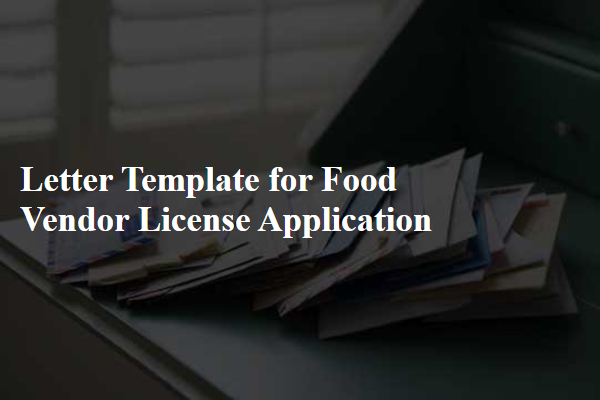
Applicant's Business Information
The Food Vendor License Application process requires detailed information about the business, including important identifiers. Business Name, such as "Gourmet Grub LLC," serves as the cornerstone of the application, representing the entity that will operate. Owner's Name, typically the primary individual like "John Smith," ensures accountability and contact for any inquiries. Address, including street number and city (for example, "123 Culinary Ave, Foodville"), allows for physical location verification. Contact Number, perhaps "555-123-4567," is crucial for direct communication regarding the application status. Email Address, like "info@gourmetgrub.com," offers an additional method for correspondence. Business Type, specifying whether it is a mobile unit, cart, or pop-up, must be clearly indicated. Furthermore, listing specific food items, such as "artisan sandwiches and gourmet coffees," helps assess compliance with health regulations. Finally, having the Federal Employer Identification Number (EIN), if applicable, is essential for tax purposes and contributes to overall business legitimacy.
Vendor Location and Type
The food vendor license application process requires detailed information about the vendor's location and type of food service. Popular locations for food vendors include bustling urban areas, popular events such as the New York City Street Fairs (often attracting thousands of attendees), and tourist hotspots like the Golden Gate Park in San Francisco, known for its vibrant atmosphere and foot traffic. Different types of food services can also play a significant role, such as mobile food trucks, offering gourmet dishes on the go, or seasonal stands specializing in local delicacies, like deep-fried doughnuts at county fairs. Additional local regulations may apply, especially regarding health and safety standards, requiring vendors to adhere to sanitation practices outlined by bodies like the Food and Drug Administration (FDA).
Compliance with Health Regulations
Compliance with health regulations is vital for food vendors operating within cities such as New York City, known for its robust food culture. Vendors must adhere to the New York State Department of Health guidelines, which include maintaining proper food temperatures (above 140 degrees Fahrenheit for hot food, below 40 degrees Fahrenheit for cold food) to prevent foodborne illnesses. Regular sanitation of food preparation areas, equipment, and utensils is mandatory, requiring specific cleaning agents approved by the Environmental Protection Agency. Licensing procedures involve submitting health inspection reports conducted by local health authorities, which typically examine compliance with hygiene practices and food handling techniques. Each vendor must also display their food handler's certificate, obtained from an accredited training program, ensuring that they understand essential safe food handling practices.
Insurance and Liability Coverage
A food vendor license application requires a comprehensive insurance and liability coverage plan to protect against potential risks associated with food preparation and sales at events. Vendors, such as those participating in large gatherings like the Maine Lobster Festival or the Los Angeles County Fair, must present certificates of general liability insurance with minimum coverage amounts, typically around $1 million. This insurance safeguards against claims related to foodborne illnesses, property damage, or injuries occurring on-site. Additionally, vendors should include endorsements for product liability and worker's compensation if employing staff. Documenting compliance with local health department regulations ensures adherence to safety standards, enhancing the application's credibility and approval chances.
Supporting Documents and Fees
When applying for a food vendor license, applicants must submit essential supporting documents along with the required fees. Key documents include a completed application form, proof of identity (such as a government-issued ID or driver's license), and any previous health inspection reports if applicable. Certifications related to food safety training, like the ServSafe certification, may be necessary to ensure compliance with local food safety laws. Vendors must also provide proof of business registration, such as a business license or registration with the Secretary of State. Fees vary significantly by location, with permits costing between $50 to $500 annually, depending on the city or county regulations. Additionally, proof of liability insurance is often required to protect against potential claims arising from food-related incidents.
Letter Template For Food Vendor License Application Samples
Letter template of food vendor license application for mobile food units.
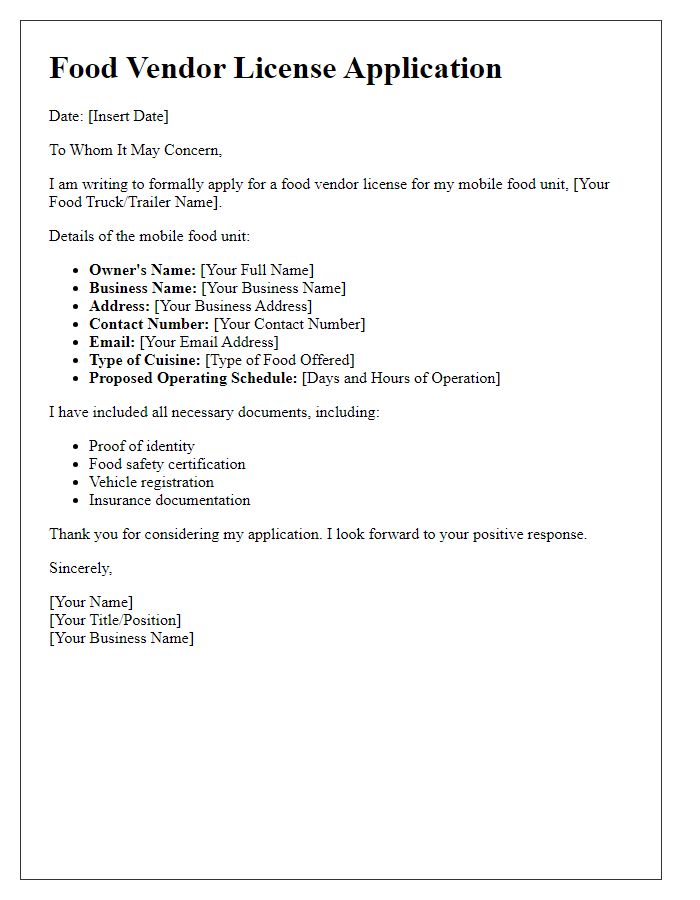
Letter template of food vendor license application for seasonal street fairs.
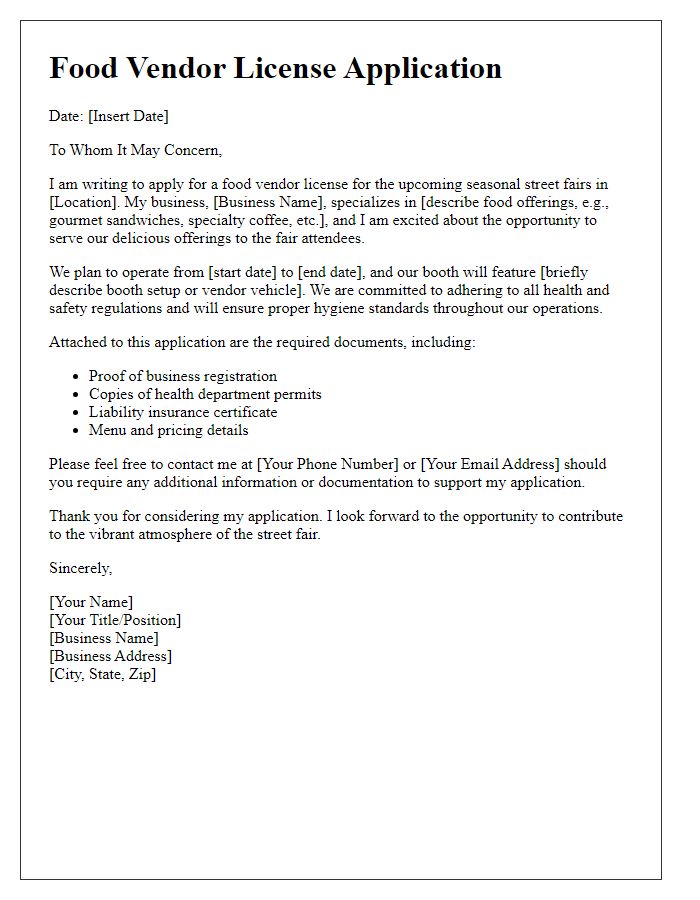
Letter template of food vendor license application for catering services.
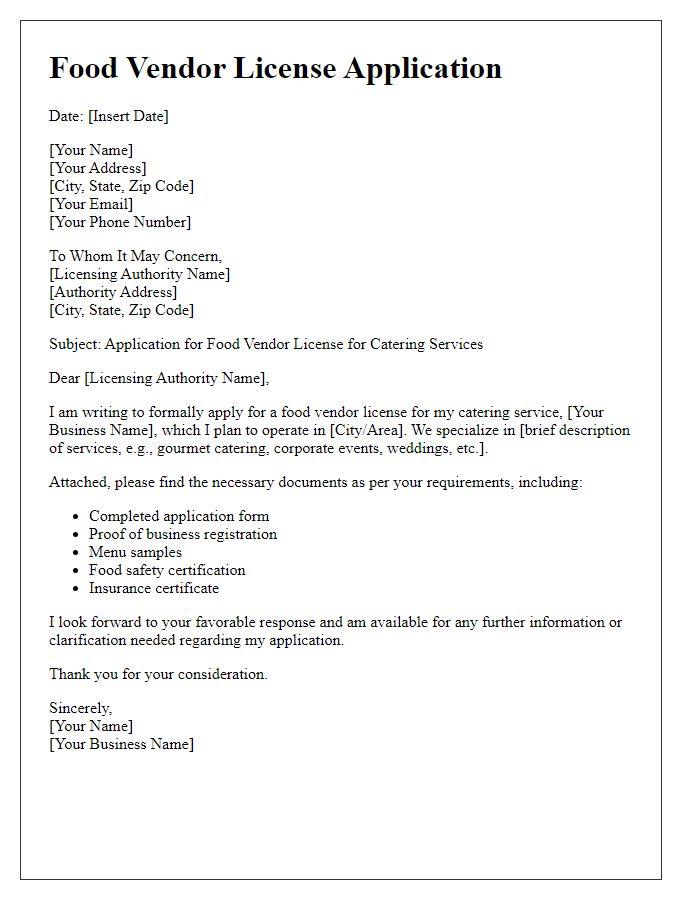
Letter template of food vendor license application for farmers' market participation.
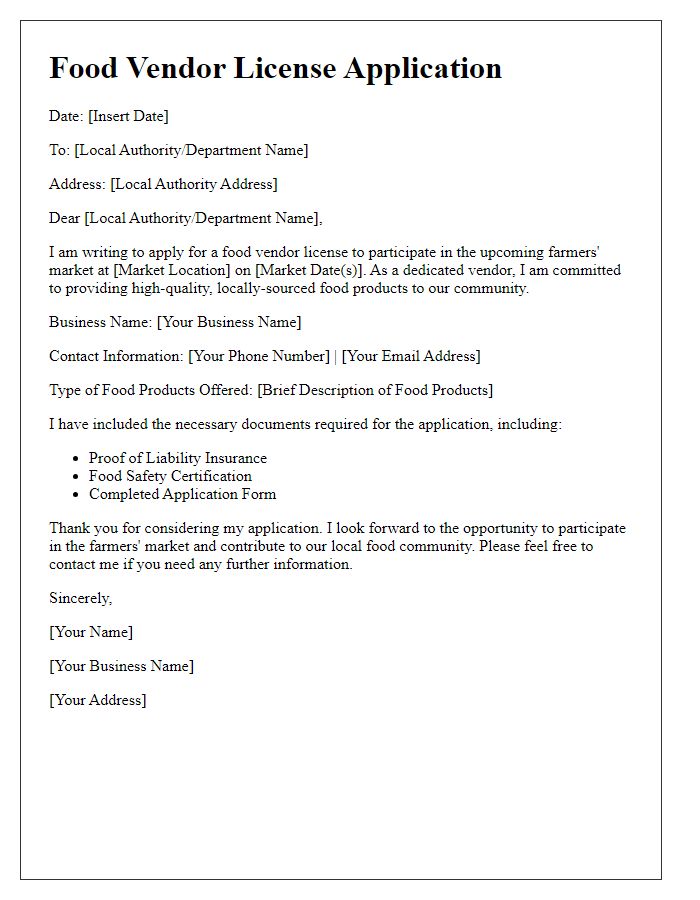
Letter template of food vendor license application for festival vendors.
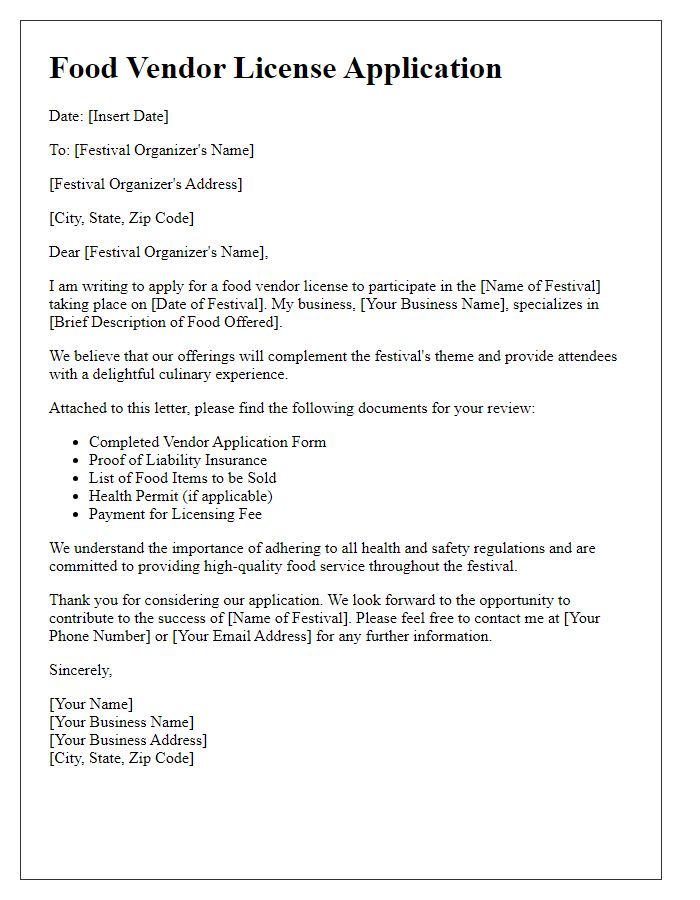
Letter template of food vendor license application for pop-up restaurants.
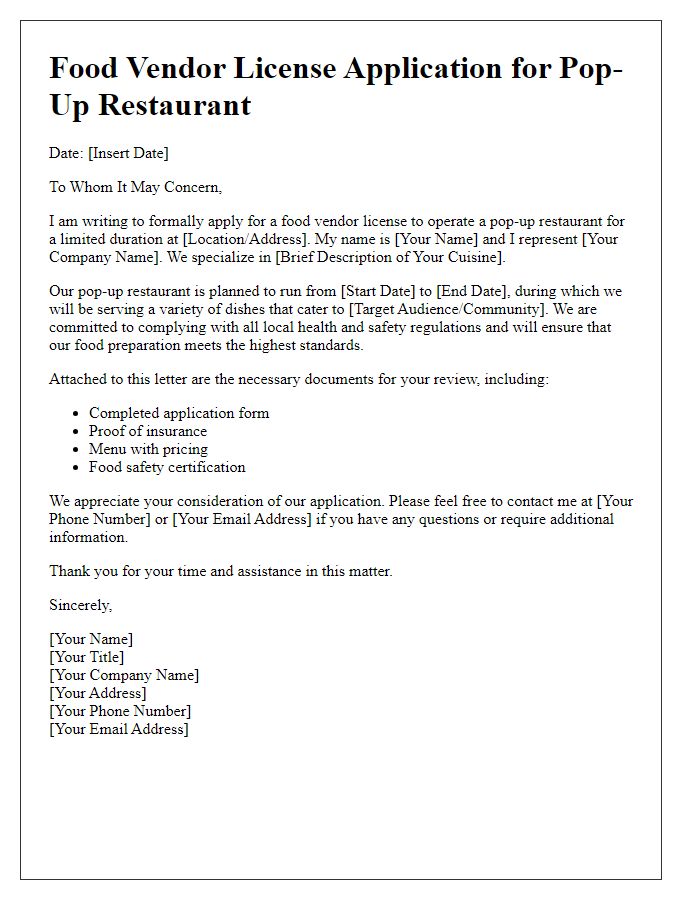
Letter template of food vendor license application for community events.
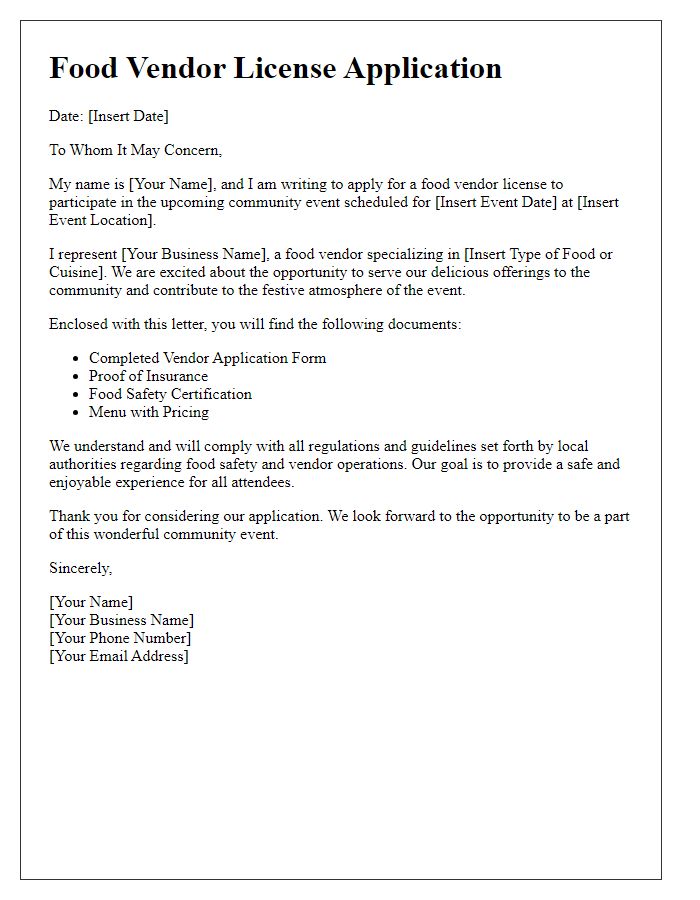
Letter template of food vendor license application for nonprofit food sales.
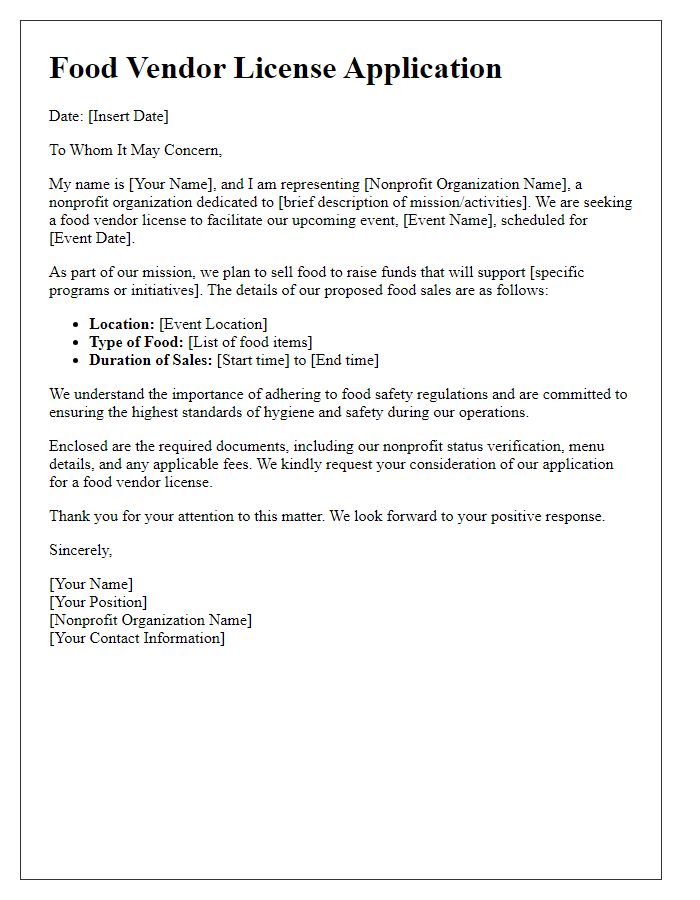

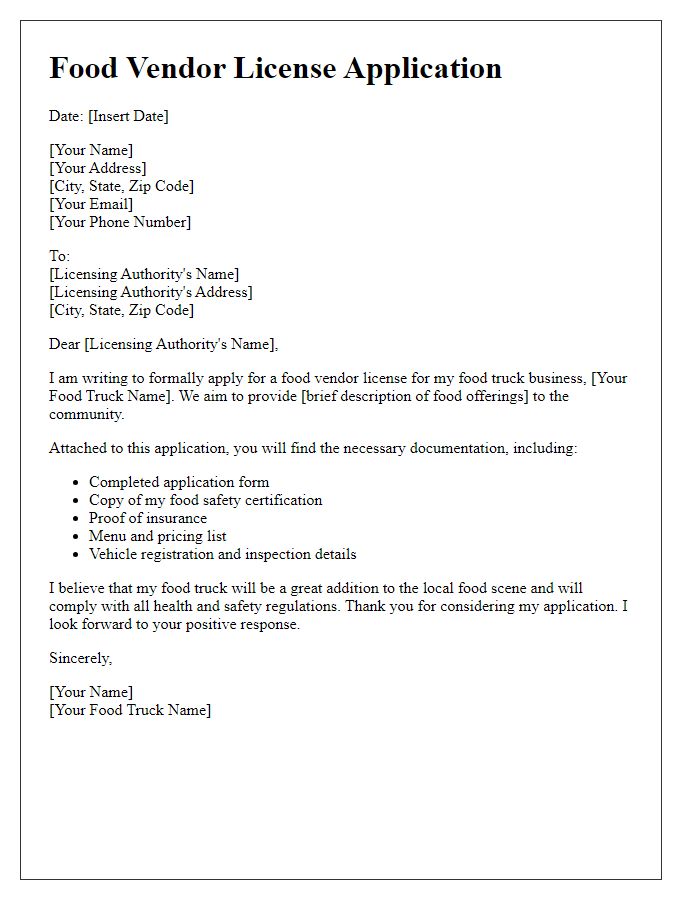
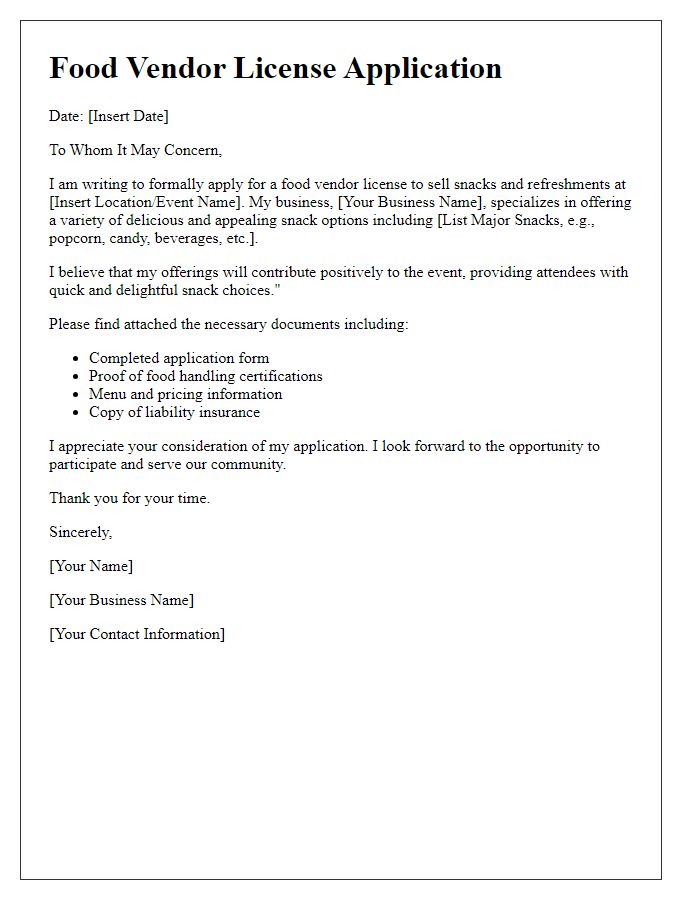

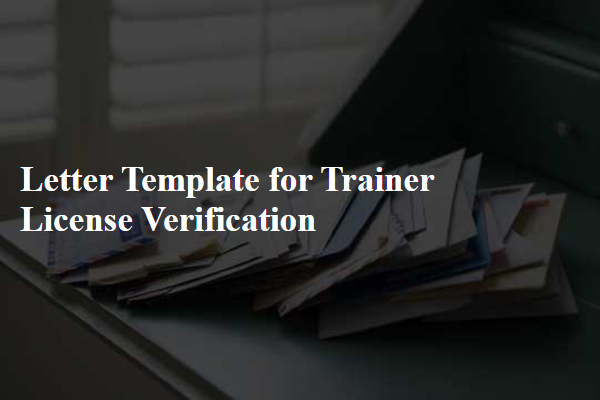
Comments